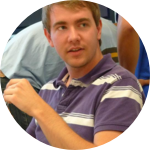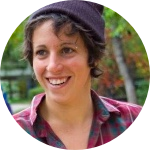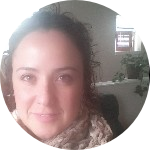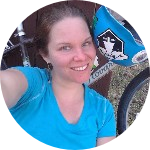About This Project
We are using a Community-Based Participatory Research approach to explore the experiences of people facing food insecurity, their challenges in accessing food, and opportunities to take action to help people realize their own personal and family food security. Using multimedia interviews, participatory data analysis, and design research, this project strives to discover barriers to food security and to develop ways to improve food access in Boulder, Colorado.
Ask the Scientists
Join The DiscussionWhat is the context of this research?
Food insecurity is “a household-level economic and social condition of limited or uncertain access to adequate food”. By this definition, 17.4 million households in America (or 14% of people) were food insecure in 2014. Food insecurity is associated with obesity, chronic illness, and contributes to continued cycles of poverty.
There has been a call for research that actively engages people facing these issues to improve food access. One way to engage people in this process is through community-based and participatory research (CBPR). These approaches improve “the quality and validity of research by engaging local knowledge and local theory based on the lived experience of the people involved” and aid in translating research into action.
What is the significance of this project?
Research exploring the diverse, lived experiences of people affected by food insecurity is essential in developing new approaches to improve food access at a community-level. In working together with people affected by food insecurity, we aim to co-create a greater understanding of the challenges people face in getting and preparing food. This will, in turn, spark new ideas for how communities can improve food access.
This project is also significant in that we are using a novel community-based research approach, which we anticipate can be used in other communities. Therefore, an important part of this project will be documenting our research process and the challenges we face. We will share our experiences and protocols, so that others can conduct similar research in their communities.
What are the goals of the project?
We aim to explore the diversity of experiences associated with food insecurity and identify food access barriers through three activities: qualitative inquiry into the lived experiences of food insecurity, participatory data analysis, and design research.
First, we'll conduct multimedia interviews with 25 people affected by food insecurity. Each person uses a camera phone, which we provide, to record their experiences getting food for 2 weeks. Afterward, we'll discuss their recordings and barriers and facilitators to food access.
Next, we'll host workshops to analyze de-identified interview data to identify common themes.
Lastly, we'll host community design workshops to co-create ideas to improve food access.
In all these activities, we'll work together with people affected by food insecurity.
Budget
We will provide a “thank you” to people who are giving their time to the project for the data analysis workshops and the design workshops. We have funding for the multimedia interviews from a different source.
For the data analysis workshops, each of the 16 participants will get a $45 gift card as a thank you for participating in two 1.5 - 2 hour workshop sessions.
For the design workshops, each of the 20 participants will receive a $15 gift card for attending a 1.5 - 2 hour design workshop.
We will pay a small honorarium to a community researcher who is volunteering her time as a member of our team and as the lead interpreter for our project. She's been involved with the research since its inception.
We will create a blog to share findings from our research. We'd like participants to share their experiences through the blog. We believe 10 participants would be interested and believe it is important to compensate them fairly as freelance writers at $28 / article.
Endorsed by
Meet the Team
Affiliates
Affiliates
Affiliates
Chris Schaefbauer
Chris Schaefbauer is a PhD student in the Department of Computer Science at the University of Colorado Boulder. His research focus is human-centered computing and community-based participatory research. He has 5 years of experience conducting community-based research and in working with communities to develop technologies that address issues that are important to them.
Nina Holtz
Nina's interest in addressing food insecurity is rooted in her passion for social justice. While studying Environmental Studies and Leadership Studies at the University of Colorado, she learned how systemic inequity can perpetuate oppression and hinder social mobility. After becoming a Boulder Food Rescue volunteer in 2012, her eyes were opened to various different faces of hunger in society. She admires this project because it focuses on increasing access to healthy foods, as well as identifying potential barriers to food security in Boulder. During the summer of 2014, she was introduced to the community-based participatory research (CBPR) approach while serving as a Research Assistant for a project exploring barriers to higher education and the presence of racism in Denver public high schools. She loves how anti-oppression principles inform the methodology of CBPR and feels very excited about the opportunity to work on another participatory project.
Hana Dansky
Hana Dansky is a cofounder and the current Executive Director of Boulder Food Rescue, a non-profit organization that works to redistribute healthy produce to low-income people in Boulder, by bicycle. They do this work through a participatory approach by developing relationships with residents at low-income housing sites and working on the back end to make sure their voices are integrated within their programs. Hana is also a part of the Boulder County Healthy Eating Active Living Team, a cofounder of Boulder Food Not Bombs, and a co-founder and organizer Food Rescue Alliance, a program that works to support food recovery organizations with their inception and share next and best practices for growth and innovation.
Ingrid Castro-Campos
Ingrid is an active member from the Latino community in Boulder County. She has been involved in volunteering programs such as BVSD Food School Project which creates opportunities for students to interact with their food and nutrition in a conscious way. She also voices Latinos in different parent committees such as Thorne Nature Experience and I have a Dream Foundation. Her interest in Social Justice, non-violent communication, and community education feed her need to enhance Latinos' participation in constructive dialogues. She is currently a full time college student and works as a Community Services Interpreter.
Lindsey Loberg
Lindsey Loberg first became involved with food justice work as a high school teacher in Milwaukee, WI, facilitating projects that explored the current food system, food waste, food assistance, school lunch programs, food deserts, and local urban farming initiatives. Food touches everything and everybody, and Lindsey is excited to be involved with Boulder Food Rescue for its potential to connect and empower people, all while addressing food waste in Boulder and around the country. When Lindsey is not BFR’ing, she enjoys riding bikes, backpacking, reading, writing, playing music, and making things.
Joel Marquez
Joel is a first-year undergraduate student in the Department of Computer Science at the University of Colorado Boulder. His interest in research led him to join this research team and he hopes to be able to help by using his bilingual skills to extend the range of participants to include members of the Spanish speaking community. He is also thrilled to be able to work with the community in order to effectively understand what obstacles prevent them from accessing healthy food and helping to develop a solution that can help reduce food insecurity.
Project Backers
- 26Backers
- 103%Funded
- $1,421Total Donations
- $54.65Average Donation







